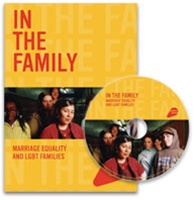
Weekend. Dir. Andrew Haigh. Synchronicity Films. 2011. 96 min.
The word that echoes through my mind, upon viewing Andrew Haigh’s 2011 film Weekend, is “true.”� Haigh has created one of the sincerest, most emotionally honest and unembellished romantic films in a generation. The film walks an utterly impressive line–the sexuality of its two leads is essential to the story’s construction and development, yet the story is so relatable that it will resonate with almost anyone who has ever felt the amorous spark of newfound romantic potential.
Weekend centers on the short yet intense romance between Russell (Tom Cullen), an isolated and vaguely plaintive lifeguard in a provincial English town, and Glen (Chris New), a deceptively standoffish artist. They awkwardly meet at a club and go home together for what appears to be an unremarkable one-night stand. Upon striking up a real conversation the next morning, however, they discover a much deeper attraction than either of them anticipated. A major conflict arises when Glen reveals that he’s a couple of days away from leaving for art school in America for the next two years.
From there, the film paints an exquisite picture of the emotional depth of these two characters. The scene where Glen discloses his imminent departure is an early case in point. Up to that point, Glen has come off as cocksure, a little crass, and a bit too clever. He could have easily disappeared from Russell’s life without explanation, yet upon leaving Russell’s flat, he returns and explains the situation with uncomfortable, hitherto unseen, sheepishness and asks to see Russell again. For his part, Russell comes across at first as something of a shy, alienated loner. Yet, as his courtship with Glen marches toward its untimely interruption, Russell’s facade starts to strip away in unforeseen and affecting ways. The deftness of the two leads’ performances in negotiating this remarkable emotional complexity is remarkable and quite a revelation. Their give-and-take is so intriguing and natural that one is not terribly surprised to discover that much of their dialogue was improvised and not scripted.
Though Weekend is only Haigh’s second feature film, he displays an extraordinary level of self-assurance. The film is not fast-paced, and conversations between the two principals often go on longer than one might expect they will. Yet the film never drags or feels slow.� Their banter reveals volumes about them, both when they chat about their interests and when they disclose their secrets, small and large. The confidence Haigh has in his actors and his pacing to make such an understated story so compelling is impressive to behold.
Weekend cannot escape comparison to Richard Linklater’s 1994 masterpiece Before Sunrise. Both films, of course, examine severely abridged romances, but they also both excel at capturing a complex feeling richly when the vast majority of films do so cheaply. Neither film offers easy answers or silly, happy endings, but they have the distinct ability to resonate deeply with the viewer for years. Weekend offers an even more incisive and updated perspective on the timeless and universal themes of love, self-identity, wistfulness and their beautiful, tragic, uneasy interplay. It explores the profound effects that hope and possibility have when they intrude upon the comforts of the mundane.
Weekend comes with my highest recommendation for all public and college/university libraries. A Criterion Collection edition with additional featurettes and interviews was released in 2012 and should be sought out if possible.
Michael Mungin, Psychology Liaison Librarian
James Madison University (VA)
